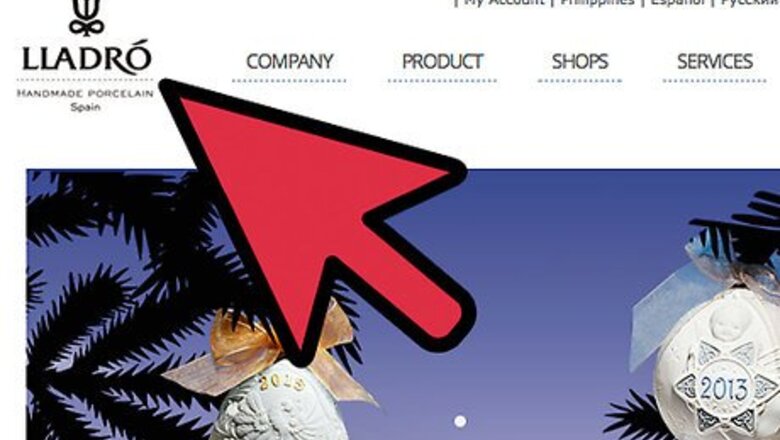
views
Do Some Research
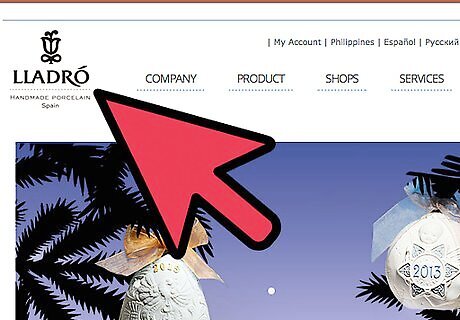
Do some basic research on Lladro. If you only have one Lladro piece to sell, extensive research won't be necessary. On the other hand, if you have a large collection of pieces to sell, you should probably do some research regarding the various finishes and trademarks used for certain Lladro pieces. Focus your research on information that will allow you to verify the authenticity of each piece. For instance, most Lladro pieces are marked with the company's bellflower trademark, but some older pieces may not have it.
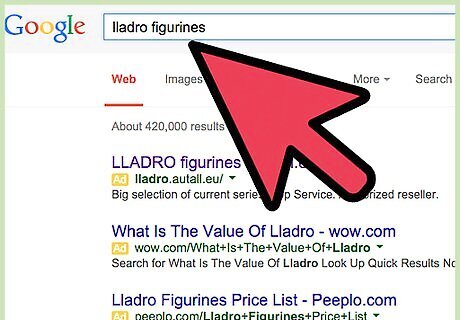
Know the details of each piece you plan to sell. Get as much detail as possible. At minimum, you should know the piece number and name of the piece. If you still have the original packaging, both the piece number and name should be on it. In rare instances, this information may also be printed on the base of the piece. When possible, you should also find out the date the piece was originally issued and, when appropriate, the date it was retired. Identify the sculptor, too.
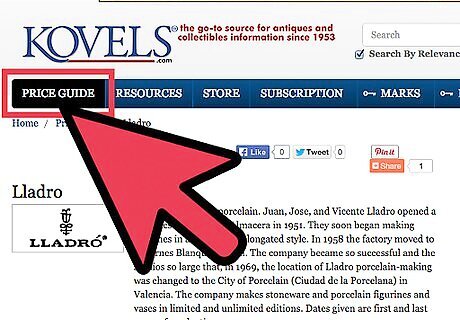
Invest in a collector's guide. Anyone who wants to sell a large volume of Lladro porcelain should invest in a recent edition of an identification and price guide. Find the most recent guide possible and look for one focused in your native currency. For instance, if you live in the United States, choose a guide that lists each value in U.S. dollars. If possible, choose an edition that is only one or two years old. Information will be too outdated in any version older than that.
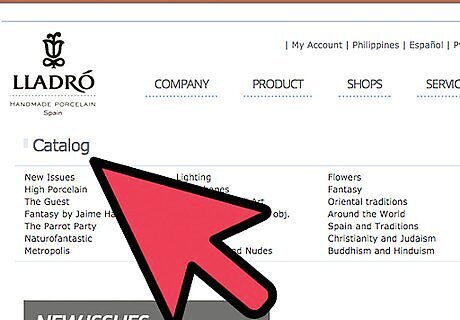
Look through the current catalog. A catalog of active Lladro pieces can be found on the company's official website. If the piece you want to sell is part of an active collection, the current retail price of that piece should be available through the Lladro catalog. You can also find out other information, like issue date or product specifics, via the catalog.

Search retail and auction websites to determine the current price. "Value" is a somewhat subjective term. You'll need to research the various listed values for a specific piece and determine the true sale value through comparison. Retail value refers to the price an official retailer would charge for a piece. Replacement value refers to the amount of money a piece can be insured for. Auction value refers to the amount of money you should theoretically be able to sell the piece for at an auction. The price you can sell an item for will usually come closest to auction value, but it can still be a little above or below this value. Keep in mind that as an individual seller, you will not be able to sell a piece for as much money as an authorized seller might.
Find a Place to Sell
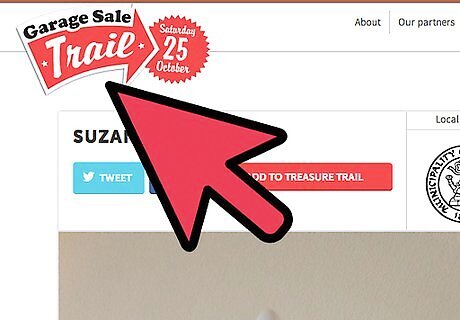
Sell at a local venue. Local venues include any location that allows you to sell a piece in person. These options are best when you don't expect or intend to make much money from your sales. Common local venues include garage sales, yard sales, want ads, flea markets, and swap meets. When someone attends a garage or yard sale, they usually expect prices to be low. If you need to make money quickly or have pieces that cannot be priced high, this option could still be worth considering. Want ads allow you to target serious buyers, but the cost of placing an ad may not be worth it if you advertise in a small newspaper. A better option would be to place an ad on a free classifieds website. Target high end flea markets and swap meets if you want to sell to serious buyers and make more money. Be aware, however, that you will usually need to pay to sell at these venues.
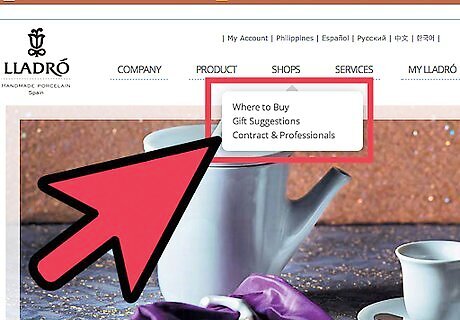
Find a dealer. Lladro dealers, including both authorized and unauthorized retailers, may buy Lladro pieces from you if the piece is valuable enough and in good enough condition. A dealer will seek to purchase the figure from you at a lower price so that he or she can turn around and sell it to another buyer at a higher price. If the retailer does not believe this to be possible, he or she probably won't want to buy your piece.
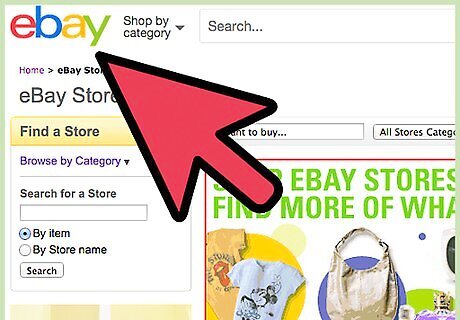
Use an online auction website. The most common way to sell individual Lladro pieces is through online auctions. You can either go through a large auction website, like eBay, or look for one that specializes in Lladro and other porcelain figures. For best results, set a reserve price when you list an item. This will prevent the item from being sold for a value that is too low. It will cost you money to use an online auction service. Expect to pay a listing fee as well as a commission fee.
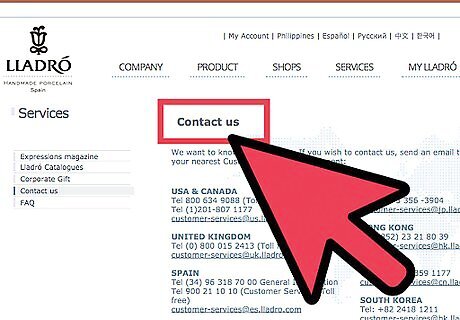
Find out about becoming an authorized retailer. If you have a large number of Lladro to sell and want to establish a store front or online shop, you might be able to qualify as a Lladro Authorized Retailer. Lladro's commercial organization is divided into territories, each of which falls under a branch company. Contact the Customer Service Department based in your location with the complete address of your point of sale. Your request will then be forwarded to the commercial manager of your regional area and handled from there. To find the phone number or e-mail address of your Customer Service Department, check the official listing: https://www.lladro.com/en_us/contact-us
Sell the Piece
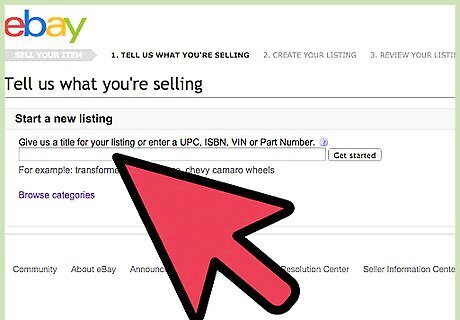
Include the basic information in your title. When listing or posting your stock, you'll need to describe each piece quickly yet precisely. Provide the piece number, piece name, and any key facts in the product title. If you are selling through a website or venue that sells other items, as well, you should preface the entire listing with the term "Lladro." When listing the piece number, ignore the leading digits (010 or 0100) and stick with the pieces that are unique to the finish of the item. Use the exact name. When selling to an English speaking audience, write the English version of the name, not the Spanish version. Do not make up a name that you believe to be descriptive; you must use the original name given by Lladro. Key facts refer to any important information specific to the piece you're selling. For example, if it is damaged, mark "Damaged." If it has been professionally restored, mark "Restored." If it's in new condition, mark "Perfect" or "Like New."
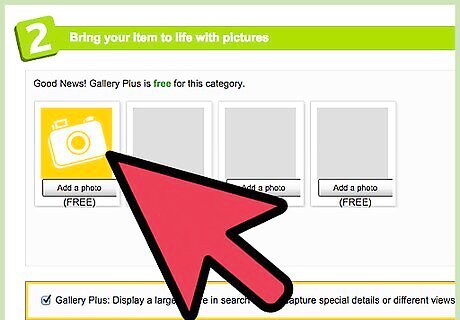
Provide pictures. When you sell online instead of selling in person, you need to take multiple photographs so that the seller knows exactly what to expect. Use photographs of the actual piece you want to sell. Do not use a stock photo. Take pictures from multiple angles. Include close-ups of any delicate details on the piece. Provide a picture of the base, as well. Make sure that this photo shows the Lladro bellflower trademark and any other identifying marks. Verify that there are no heavy shadows or reflections before using a particular photo. The colors should also be true to the actual piece.
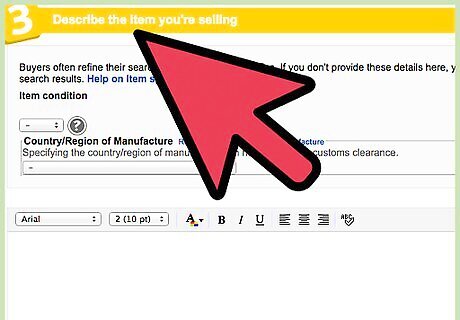
Describe the item in further detail when appropriate. Depending on the selling venue, you may or may not be asked to provide a full description of the piece. Restate the basic information provided in your title before elaborating further. Mention whether the finish is glass or matte. Indicate whether or not the piece comes in its original packaging. Provide any other technical details not mentioned in the title. This includes issue date, retirement date, and sculptor name. Describe the full condition of the piece. Include any key details about ownership history. For instance, mention whether it has ever been damaged, if it stayed in its box for years, and details of that nature. If there is no bellflower trademark due to age or other issues, indicate why this is the case and verify the authenticity of the piece in another way.
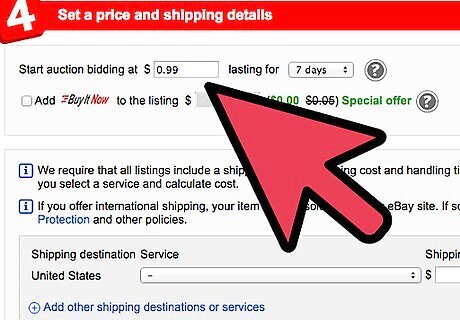
Set your price. Simply put, the price you set should be the maximum price you expect someone to be willing to pay for the piece. Keep the commercial value of each piece in mind when setting your own price, but don't lock yourself into it. Rare pieces tend to sell for a higher price than pieces that are easy to find. Older pieces also tend to have more value than more recent ones. While these two points are often true, however, there are also times when a certain piece will break these rules. Consider your potential buyers, as well. Serious collectors will pay more than the average customer browsing at a yard sale. Also pay attention to your time frame. If you want to sell a piece quickly, you will need to price it down. If you are not restricted by time, you can afford to set the price higher and wait it out.
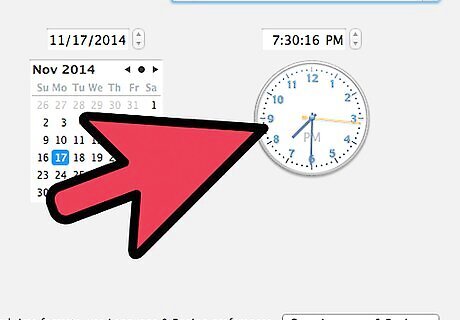
Wait for the sale. After you set your price and actually put the Lladro piece up for sale, you need to wait until someone comes along who is willing to buy it. You can advertise your item, but ultimately, this part of the process involves a lot of inactive waiting. If your piece doesn't sell, reconsider your approach. Ask yourself if a different selling venue might be better or if you need to drop the price. When you do make a sale, take great care packaging and/or shipping the newly purchased item. If the Lladro figure breaks during shipping, you may need to return the money. If you don't offer a refund, your reputation might be hurt, making it more difficult to sell future pieces.




















Comments
0 comment